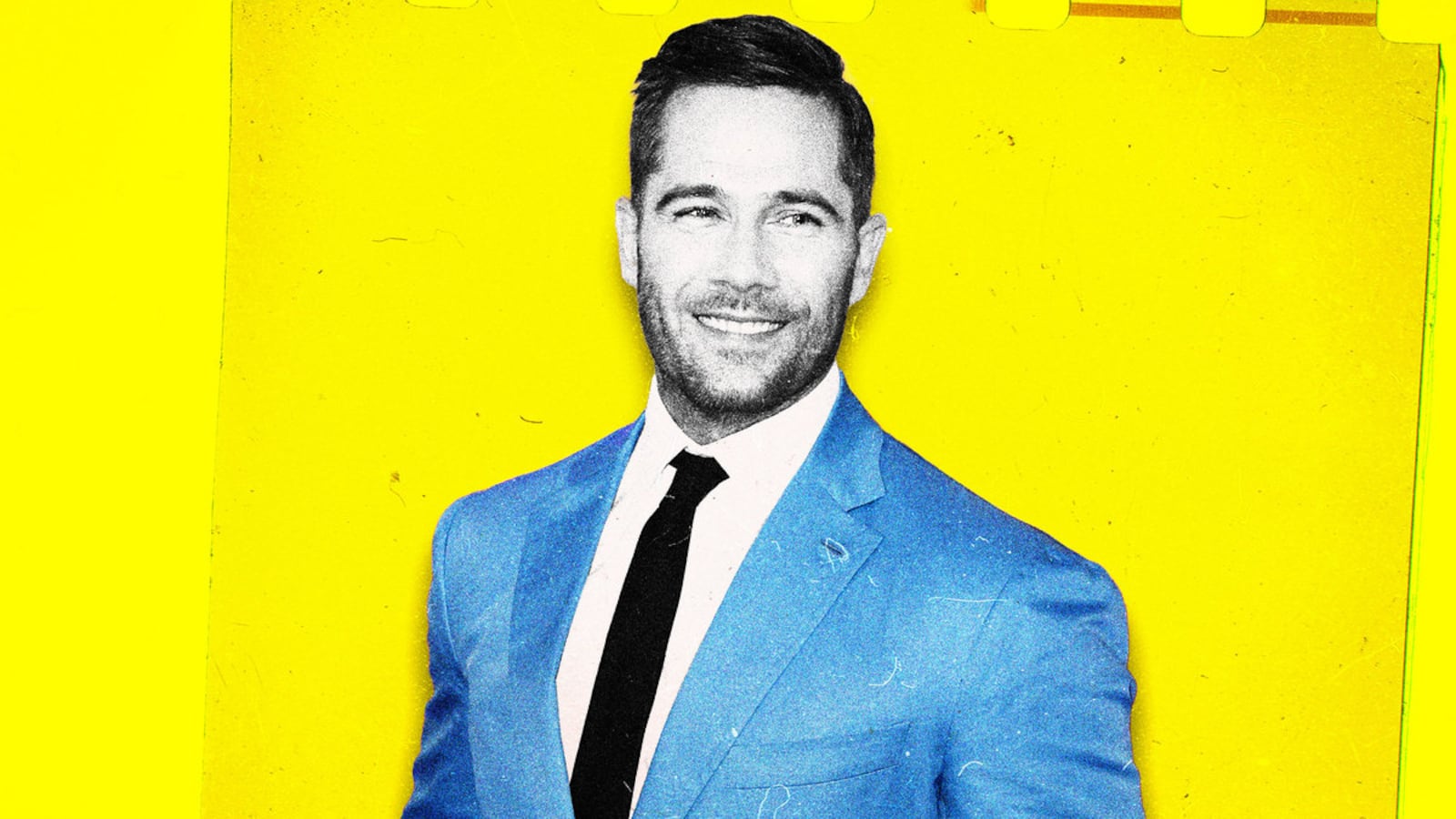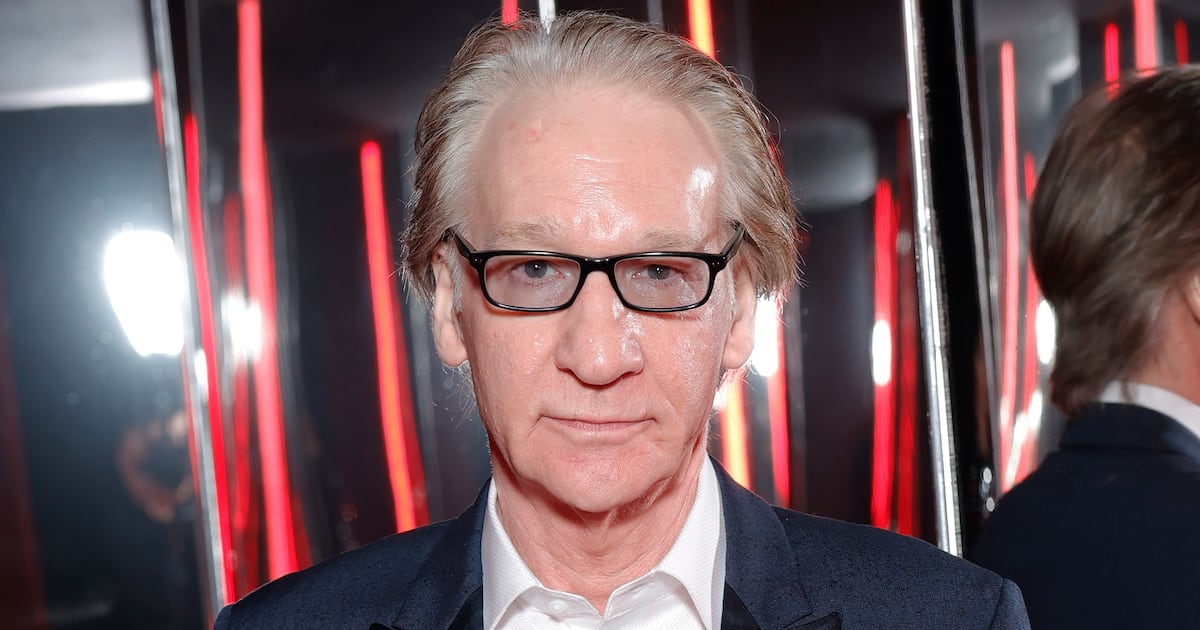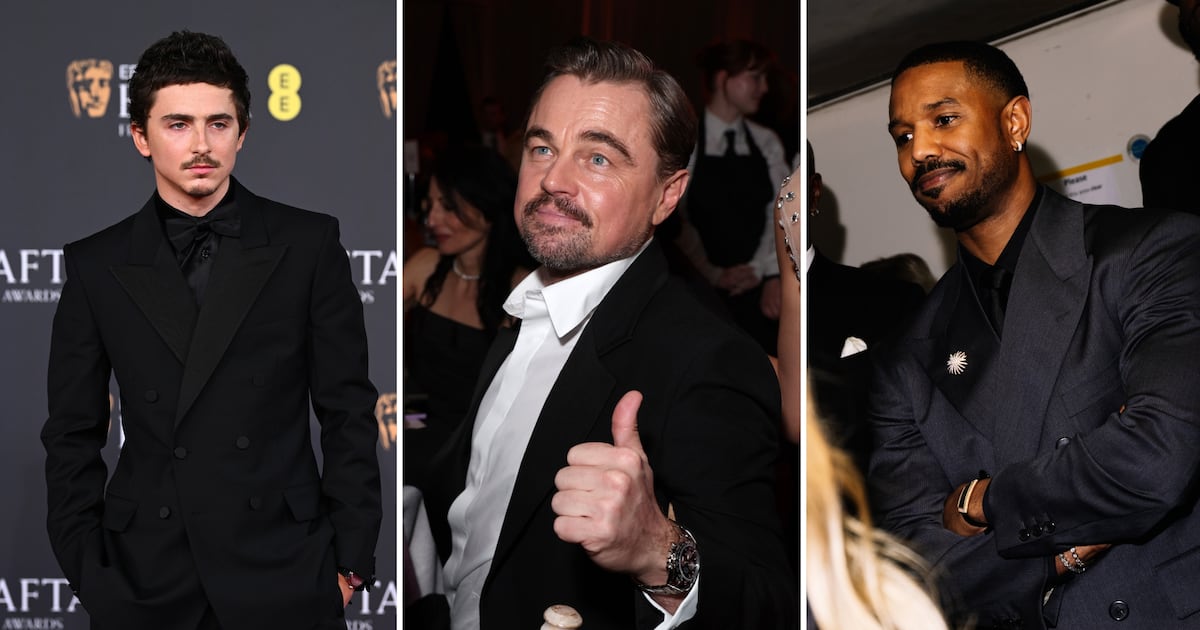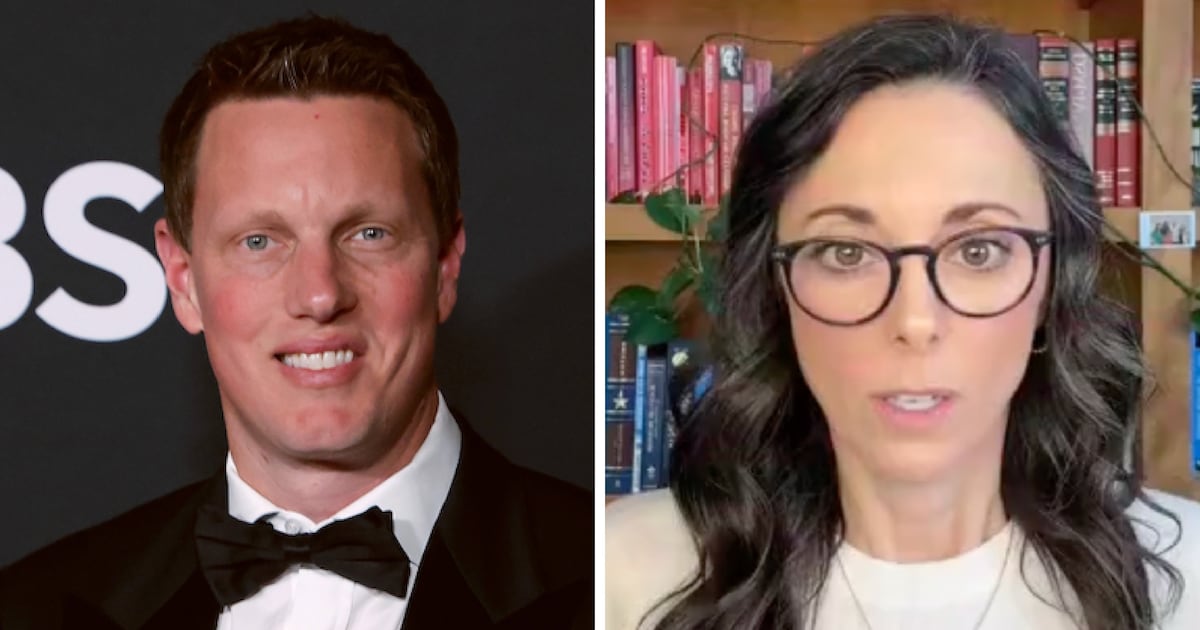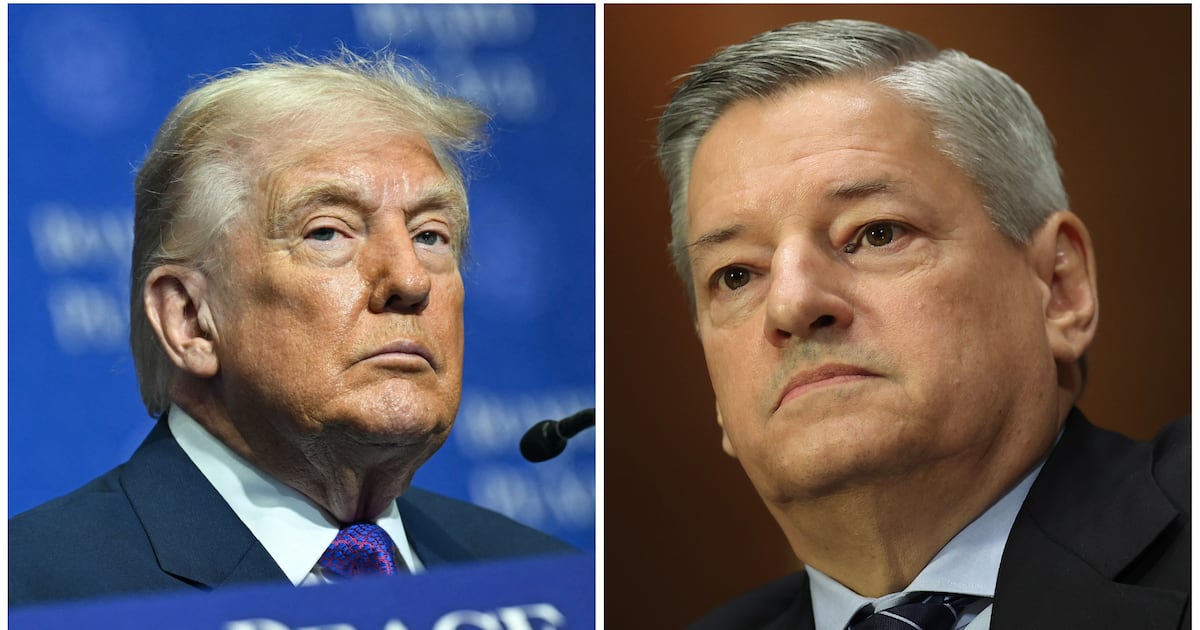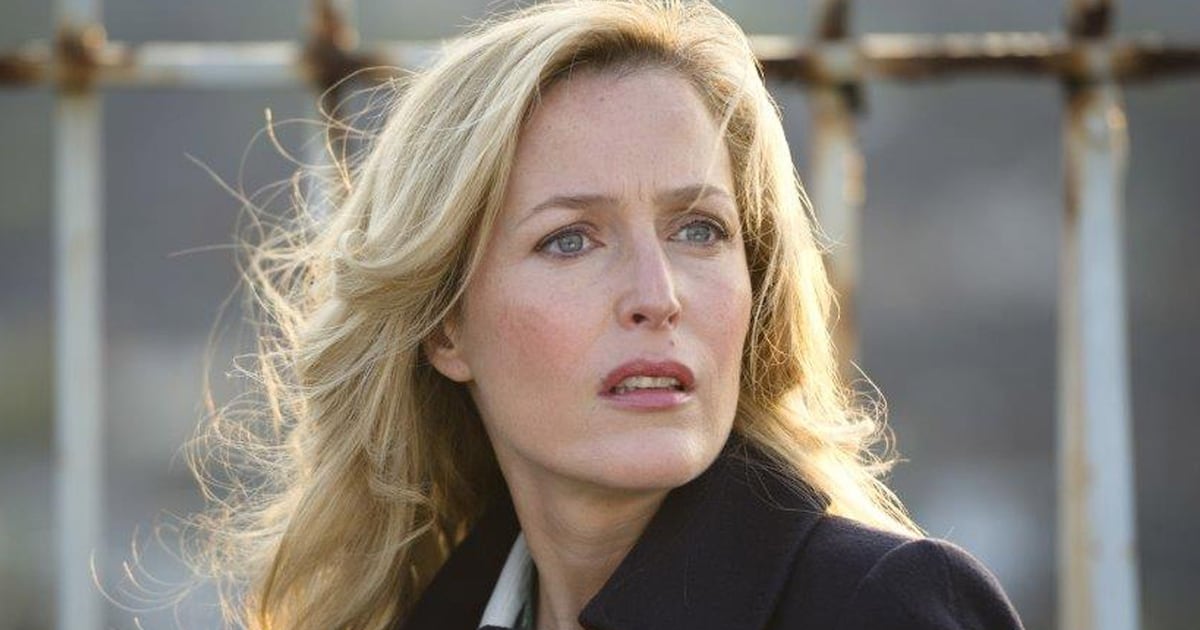“I’m no stranger to intimacy,” says Luke Macfarlane. Given what we’re discussing—the explicit sex scenes and filthy, flirty dialogue between gay men that happens in the new movie Bros— the next words that come out of his mouth are unexpected: “I’ve kissed a lot of women on Hallmark.”
In ways that might be difficult to understand, that is a powerful statement.
Macfarlane and I are in a SoHo hotel room to discuss Bros, his new romantic comedy. Bros. is a Big Gay Deal, and Macfarlane and I have convened to talk about Big Gay Things. He can barely keep his eyes open: Macfarlane’s been on a cross-country roadshow promoting the film. He’s already done countless meet and greets with the LGBTQ-identifying community that’s been clamoring for a movie like this. Night after night, he’s been doling out hugs after screenings. (There was even a showing at the Castro Theater in San Francisco whose turnout gives Macfarlane a lump in the throat, just by mentioning it.)
Bros.’ release isn’t just emotional—it’s historic. It’s the first major studio theatrical release starring two gay men as the love interests. Billy Eichner (of Billy on the Street fame) co-writes and stars in the film, which was directed and co-written by Nicholas Stoller (of Forgetting Sarah Marshall and Neighbors fame). Judd Apatow (of Judd Apatow fame) is a producer.
And then there’s Macfarlane, Eichner’s co-star. As it happens, Macfarlane’s making LGBTQ history. Again.

Macfarlane came out publicly as gay during the run of Brothers & Sisters. Actors didn’t do that back then. If they came out, they could no longer play straight roles—limiting their options in the industry. At least, that’s what publicists told them, and the media usually confirmed it.
But he did it anyway, and something incredible happened. If you’re reading this, you might know Macfarlane not from Brothers & Sisters or as your decade-long crush. (Is that just me?) You might recognize him instead for being one of the Hallmark Channel’s most in-demand leads, playing a straight, heterosexual love interest in a slew of holiday films. (These include: Chateau Christmas; A Shoe Addict’s Christmas; Christmas Land.) He was accomplishing exactly what Hollywood suggested was impossible for out gay actors.
Macfarlane has a pat and humble answer for how he managed that. “God bless Hallmark for giving me those opportunities when a lot of people didn’t, and I took full advantage of them,” he says.
But Hallmark isn’t the only studio seeking him out for the straight leading man roles. “I actually just finished filming a series for Apple TV called Platonic, where I play Rose Byrne’s husband and we have three kids,” he says. “I get to play a straight character again. And I hope that that sort of crossover between gay and straight becomes easier for for queer actors moving forward.”
Here Macfarlane and I are, talking about how he became part of one of Hollywood’s gayest movies to ever hit the big screen, and it hits me just how much his success means. It means being seen. It means letting others see themselves. And it means just letting an actor be an actor.
What is remarkable about Bros—and remarkable still feels silly to say—is that there is gay sex in it. Bobby and Aaron, Macfarlane’s character, have a complicated, rom-com-ready journey. But there is sex involved, and it’s meant for all of us to see and appreciate as part of two men’s pursuit of a happily ever after.
When we first meet Aaron, for instance, the entire point of his character is that he’s just so goddamn hot.

He is shirtless on a dance floor. Billy Eichner’s Bobby—a cerebral podcast host and museum curator—scoffs, snorts, and rolls his eyes, one dramatic bodily reaction for each pair of Aaron’s abs. Bobby’s friend says that Aaron’s “hot, but boring.” There probably won’t be any spark between them. In the middle of their first conversation, Aaron points at two guys grinding at the club: “I’m supposed to fuck him and his husband later.”
In fact, one of the first scenes of the movie is a largely silent sequence—absent some errant grunts and a “hey”—in which Bobby has a Grindr hookup, played out perfectly in its awkward, horny, strangely clinical, rote glory. “I always laugh at that scene, because the quality of that had a Homicide: Life on the Streets vibe,” says Macfarlane. “There was a certain level of ecstasy and terror involved in that that I think most gay men can relate to.”
Those gay men don’t have to take a train to New York City’s West Village to see this scene, or the movie, at the one independent cinema where Bros is playing. It’s a wide release meant for everybody.
“To see ads for [a movie like] this, walking from the Sears department store on your way to the multiplex in like the suburbs, where I came from… that would have been wildly mind-blowing for me,” Macfarlane says.
Macfarlane was born in London, Ontario. Growing up, his options to explore his sexuality were limited. “I was like, you know, lingering at the Eton’s men’s underwear section,” Macfarlane says with a laugh, referring to the Canadian department store. “Phil Donahue had the Chippendale dancers on once and that blew my mind.”
He moved to the U.S. to attend the famed Juilliard School for the performing arts. His career started on the stage, before he landed a role in the 2004 Oscar-nominated film Kinsey, eventually leading to Brothers & Sisters.
It was in 2008, during his second season on Brothers & Sisters, that he came out in an interview. With that came more interest in him and his career.
“I have always valued and, for whatever reason, been taught that yourself is the most interesting thing you have to offer,” he says. But before Brothers & Sisters, his personal life never came up during interviews. “I kind of lived a little bit of fear that it would,” he adds. Hollywood, as he knew, could be unkind to an out-and-proud actor, especially one who was newer on the scene.
Macfarlane recognizes how far he’s come from then, though—as well as how far media has come, in terms of offering gay men like himself something to pine for.
Bros serves up way more delectable options for LGBTQ folks to sink their teeth into than Donahue did. Macfarlane smiles and squints his eyes seductively: “I think one of the unexpected things about Bros is that it’s very sexy.” It’s a rare, exciting, very true thing to say about a movie like this, after all these years.
There is a specific plight of being a marginalized person who loves watching rom coms. This is not a universal experience, of course. A cisgender gay man searching for himself on screen has a different experience than, say a woman of color. No person’s relationship to this is identical. But no matter the particulars, being this kind of person is labor.
It means having to take whatever fragment of yourself that you might see glimmering off the shoulder of a Julia Roberts- or Hugh Grant-type character on screen, then being at peace with that tiny bit of shine. You learn to bask in it, like it’s a Broadway spotlight on your entire life. You might start to convince yourself that maybe you belong; maybe someone is seeing that little twinkle and realizing that it’s you. Maybe you even see yourself.
It’s not narcissism that drives the need to see yourself, exactly as you are, on screen. The escapism and unattainable glamor of Hollywood are the entire point—especially in romantic comedies. The images that beam off that screen and embed in your body, in your heart, and in your soul—they tell you that you deserve love. That you deserve pleasure. That you deserve happiness. Pop culture is meaningful. What we see matters.

That’s why there’s such a hullabaloo every time a “ground-breaking,” “landmark” or “historic” movie, like Bros, comes along. When there’s finally a chance for your community to be represented, so often ignored and devalued by the world, it rarely ever pleases everyone. It can’t.
I can’t write about Bros—and it certainly wasn’t possible to talk to Macfarlane about it—without inserting myself and my experience. As such, I can only speak as a gay man, who has both celebrated and been entirely pissed off by different examples of LGBTQ representation in mainstream culture, gay and otherwise.
Most of the time, these attempts lean too much into cliches about promiscuity. They neuter themselves and ignore the sex of gay sexuality. They’re too specific. They’re too broad. They alienate a mainstream (or non-LGBTQ) audience. They care too much about a mainstream audience. What about body inclusivity? Racial inclusivity? Gender identity inclusivity? And why does this gay character have to be a saint, anyway? Wait! Now, why do they have to be so hateful?
From Eichner, from Stoller, from Apatow, and from the entire cast involved, there seems to be an awareness of how impossible it is to get this right. But it does make some good decisions from the start: Every main character, even the heterosexual ones, in Bros is played by openly LGBTQ-idenitfying actors. Even within the community, it’s hard to process how big of a deal this is.
“If I’m being totally honest, there was a part of me that went like, ‘Oh, it’s a Judd Apatow movie! It would have been really cool to work with some huge celebrities!’” Macfarlane says about the cast. “But then I realized that these people truly are celebrities. Some of them actually are celebrities in the LGBTQ community, which I also learned about. So I think I learned how narrow my view was about all the different sorts of amazing performers.”
But the casting aside, there’s something different about Bros, at least from my own experience watching it.
Yes, I identified more with these two romantic leads than I ever had with any rom-com character I’ve ever watched in my life—and I consider myself a historian on all matters Ephron-Meyers-Marshall (my Holy Trinity). I also found there to be explicit, character-defining things that I had nothing in common with at all. Everyone I’ve talked to about this movie felt the same way. Macfarlane himself did too. Finally getting to play a part in which he could process how he did and didn’t relate to it, down to who he wants to bang and fall in love with, was, in a way, therapeutic.
“Whatever it was that made Billy want to write a character like Aaron, I was very fortunate that I did inhabit a lot of those things naturally,” he says. “I must admit,” he goes on to add, “watching the movie is a reminder of the work that I was able to do early in my life in order to be comfortable with myself, because I am actually very, very comfortable in my skin. But that was the privilege of having a family that loves me and going to a school like Juilliard that encouraged me to discover my truth and tell my truth.”
The emotional core is relatable, even when the details aren’t. Take this beautiful scene at the end of the film, which has been referenced a lot in the pre-premiere press. Bobby looks out at a posh party and sees a roomful of LGBTQ-identifying people dancing. They are experiencing unbridled, unapologetic joy, the antithesis of all of the trauma that his character had been speaking about up until then.
When asked what it was like filming that scene, Macfarlane catches himself by surprise: He starts crying. He’s just tired, he swears. But as he speaks about it, he’s clearly moved.

About a decade ago, he explains, he starred in the Broadway production of The Normal Heart by Larry Kramer, a screed about the way gay men were deemed expendable by a government that let them die of AIDS, rather than fund life-saving research.
“There’s a speech that Joe Mantello’s character gives about a fundraiser that happens—and this is as all the characters have disappeared—and he said they had a dance…” Here is where Macfarlane chokes up. “To have a dance. It’s the best thing. Very moving. I would have loved [for] Mr. Kramer to be alive to see Bros. I think he would have had a lot of thoughts.” We both laugh knowingly at this. Eventually, the laughter dissipates. “Sorry. I’m very tired.”

